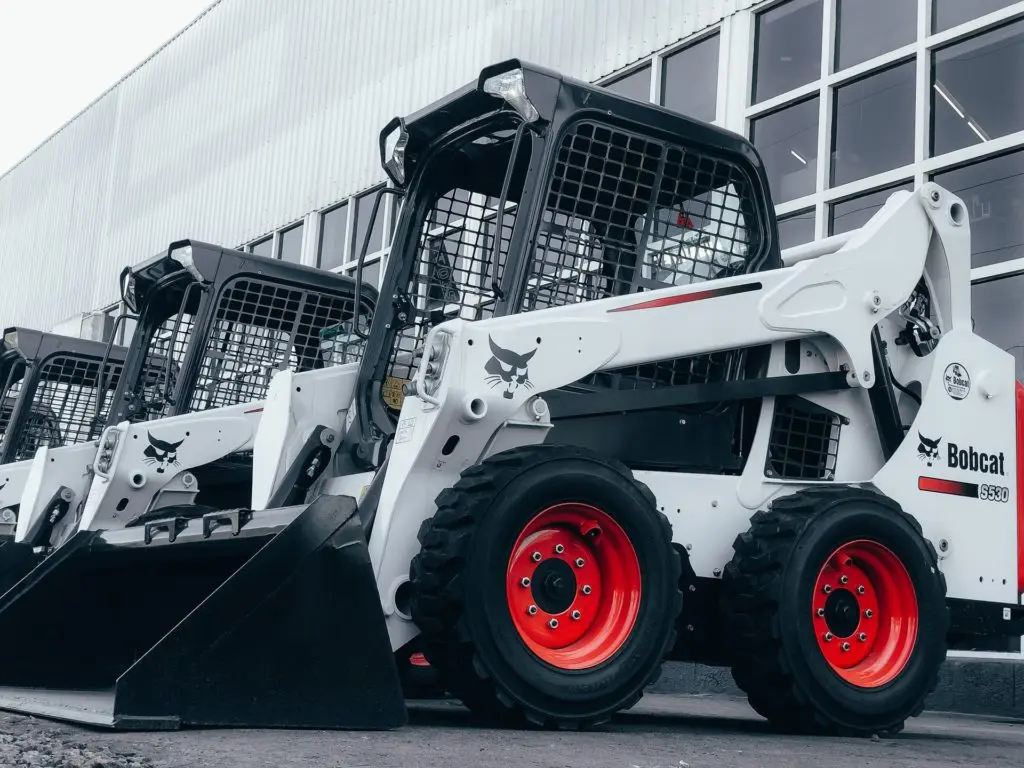Landscaping and lawn care businesses have a great opportunity to use quality weather data in an automated way to improve their efficiency, drive customer satisfaction, and increase profits. Common wisdom suggests that only larger organizations can afford to access automated weather data services, and smaller businesses are stuck watching the nightly TV weather person to get their information. In this article we will show various ways that even a small business can get value from weather data for a price that is less than their daily coffee.
Sources of weather data
There are many sources of weather data available to small businesses. The most basic form are weather reports via television, radio and newspaper. For 100 years, radio broadcasters have been broadcasting weather reports (KDKA in Pittsburgh broadcast the first known weather report on November 2, 1920) and newspapers have been doing so for much longer. With the advent of the internet, online weather reports and sites became popular. They allowed anyone to get a weather report for any location at any time. However, they were slow and cumbersome to use especially when querying multiple locations. So while they were helpful for individuals, they were generally not suitable for business use.
Businesses need to find the weather conditions at multiple locations quickly and easily. In the case of landscaping and lawn care services, they need to identify the current and forecast weather conditions at customer locations and worksites. This is important for resource allocation, scheduling, and making customer commitments.
The ideal source of efficient weather data for multiple locations is a weather data service. A single query to a weather data service can be used to update the forecasts for an entire spreadsheet of locations. Those conditions can then be displayed, ranked, and color coded to optimize service schedules. In addition a weather data service can provide historical weather data. This can be useful to diagnose past happenings, such as why plantings on a certain date and location died instead of blossoming. It is important to understand if the customer complaint is due to a problem with the plant supplier, a mistake in planting technique, or problematic weather conditions.
Using a weather data service without getting bogged down in tech
One of the easiest ways to use a weather data service is inside a tool that is already familiar. One of the most familiar management tools for a small business is Microsoft Excel. Visual Crossing Weather offers various, pre-built Excel workbooks that can use your existing list of locations and load the exact weather data that you need in seconds. Forecasts are a critical component for job scheduling, and you can use the Visual Crossing Weather forecast workbook to find that data for all of your locations instantly.
While the basic weather workbook is a valuable tool and ready for use as it is, for those who are Excel savvy, it is just the beginning. The weather workbook makes simple URL-based calls based on the locations in the sheet data. Read more about the logic behind the workbook, and then you can customize it to handle any weather data need that your business may have. Of course, if you prefer Google Sheets, it is easy to do weather queries in Google Sheets instead. Several helpful tutorials are available.
Weather data use cases for landscaping and lawn care
While there are hundreds of creative uses for weather data in landscaping and lawn care businesses, below we’ll discuss a few of the more common ones. We’ll not only explain how to add business value with these use cases, but also how to get the related weather data easily using Visual Crossing Weather

Job site scheduling
One of the first weather data use cases in landscaping and lawn care is to intelligently schedule work jobs. This is paramount to ensure not only that critical work gets completed on time, but also to optimize use of resources. The first step is to find the forecast for every location on your work schedule. If you have your job sites in an Excel sheet, this can easily be done using the Forecast Weather Workbook mentioned above. Visual Crossing Weather provides a full 15-day forecast for every location. Once the forecasts are loaded, you can use Excels sorting and thresholding functionality to mark when sites are suitable for work, what type of work can be done, and when your landscapers need to work elsewhere. Match this against a sheet of your contractual commitments to ensure that all work gets done on time and efficiently

Resource management
Another related task is resource management. Both human resources and equipment are a large portion of the expenses for a landscaping business. In order to properly manage the business, you need to know how many of each are needed, on what dates, and at which locations. This is especially true for business who use temporary and contract workers and those who use rental services for equipment. Accurate long-term forecasts can help you schedule workers and rentals to make sure that they will be optimally utilized. The Forecast Weather Workbook can be the core of that effort making it easy to see weather conditions across your entire business area.
Weather-based marketing
Landscapers, like most businesses need to market their offerings in order to prosper. Using weather forecast data as well as long-term climate patterns will help make sure that you get the right marketing in front of future customers at exactly the right time. For the near term outlook, you can use the 15-day forecast for your customer’s areas to determine what services to market. For the longer-term view you can introduce ultra-long-range “statistics” based forecasts into your marketing decisions. These special forecasts extend into the future beyond the traditional 15-day forecast by weeks or months. They allow you to see what the expected conditions for any location based on the weather that normally happens at that time of year. So you can easily plan your marketing around shifting seasonal and climate changes.

Adding value to your website
It is easy to overlook the simple and the obvious, but sometimes the simple can be just as valuable as the complex. One great use of weather data is to put a weather forecast widget directly on you website. Visual Crossing Weather offers various free weather widgets including one for standard websites and one for sites using WordPress. These interactive widgets allow customers to explore the weather conditions without leaving your site and in doing so they can increase the time spent there. The more time a prospective customer spends on your website, the more likely they are to find other content that interests them.

Understanding what happened when things go wrong
It is inevitable in a landscaping business that plants die and retaining walls fail on occasion. When this happens, it is important to understand why, both to improve your projects going forward and explain the situation to the customer who may be unhappy. In this case, you need to use historical weather conditions to better understand the problem. Did the plants die because the supplier provided bad stock, due to unexpectedly harsh weather, or because the planting process was not done properly? Did the retaining wall crack because of material failure or because a torrential downpour hit that specific area at the wrong time.
Visual Crossing Weather provides easy access to historical weather records both via a bulk API and an easy-to-use web query page. As a Visual Crossing Weather customer, you have access to both and can use whichever option better fits your needs.
Tracking landscaping project progress
Historical weather data can be used to track the progress of your projects and how that progress relates to weather. You may want to track how fast trees grow or how frequently lawns need to be mowed. These are all dependent upon weather conditions such as growing degree days (GDD) and precipitation. The growing degree days Excel workbook allows you track the GDD for your sites and historical precipitation data is also available. Understanding the conditions of the current growing season allow you to make better plans and decisions.
Tracking customer interactions and sales
Another interesting use case for weather data is to track weather conditions in relation to your customer interactions. You may that prospective customers are more likely contact a landscaping business or are more likely to sign up for a service in certain weather conditions. Warm spring weather can make people think about improving their landscaping so that they can enjoy their outdoor space more during the summer. Stormy weather, on the other hand, may remind people that some of their landscaping is as risk of causing damage to their property. By making sure that you have a ready response for the customer, you can often secure more business exactly when they are in the mood to spend money.
If you are a Microsoft Outlook user, one way to easily accomplish this is via the Visual Crossing Weather Outlook plug-in. It will allow you to find all of your interactions with each customer and match them to the weather records at that time. Pulling up this data for any customer can help you better understand what drives them to make buying decisions, and understanding these patterns across your entire business can help make sure that you have the right offers in place at the right time.
Summary
As we’ve seen, analyzing weather data can add a lot of value to landscaping and lawn care businesses. Whether the business is composed or just a few people working together or a large team spread widely, there are many business cases that use weather data to increase efficiency, optimize use of resources, and help explain and resolve trouble when it arises.
If you have additional landscaping weather data use cases that you would like to see discussed here, or if you need more information on weather data in general, please reach out to us. Our weather experts will be glad to work with you to understand your needs and find the best weather data solution.

